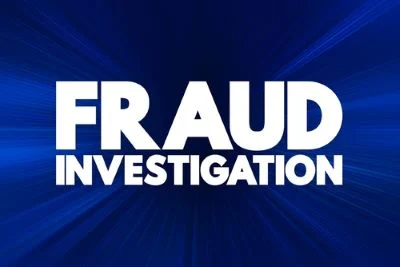Introduction to the Capricor Class Action Lawsuit

The Capricor seeks to represent purchasers or acquirers of Capricor Therapeutics, Inc. (NASDAQ: CAPR) securities between October 9, 2024 and July 10, 2025, inclusive (the “Class Period”). Captioned Leong v. Capricor Therapeutics, Inc., No. 25-cv-01815 (S.D. Cal.), the Capricor class action lawsuit charges Capricor and Capricor’s CEO with violations of the Securities Exchange Act of 1934.
If you suffered substantial losses and wish to serve as lead plaintiff of the Capricor class action lawsuit, or just have general questions about you rights as a shareholder, please contact attorney Timothy L. Miles of the Law Offices of Timothy L. Miles, at no cost, by calling 855/846-6529 or via e-mail at [email protected].
Lead plaintiff motions for the Capricor class action lawsuit must be filed with the court no later than September 15, 2024.
Please see the various investor resources below for an additional wealth of information.
Understanding Securities Fraud Class Action Lawsuits
Securities fraud class action lawsuits represent a significant legal mechanism for investors who have suffered financial losses due to corporate malfeasance. These lawsuits, such as the Capricor lawsuit, typically arise when a company or its executives engage in deceptive practices that mislead investors about the company’s financial health or prospect.
The goal of such litigation is to hold the perpetrators accountable and secure compensation for the affected investors. Securities fraud encompasses a range of activities, including insider trading, false financial statements, and misleading disclosures, all of which can severely impact market integrity and investor confidence.
In a class action context, a group of investors collectively brings the lawsuit against the defendant, which could be a corporation or its executives. This collective approach is particularly powerful in the securities realm because it allows individual investors, who might not have the resources to pursue litigation on their own, to band together and seek justice.
The class action mechanism ensures that the legal process is efficient and that the interests of all affected investors are represented.
The complexity of securities fraud class action lawsuits requires plaintiffs to navigate a labyrinth of legal standards and procedural hurdles. One of the most significant challenges is surviving a motion to dismiss, a legal maneuver by the defendants to have the case thrown out before it reaches trial.
Understanding the nuances of the Capricor lawsuit is crucial for any stakeholder involved, as it sets the stage for the strategic decisions that will follow. In the case of the Capricor class action lawsuit, these elements come into sharp focus, highlighting the importance of a well-crafted legal strategy.
Overview of the Capricor Class Action Lawsuit
The Capricor lawsuit is a securities class action lawsuit that centers on allegations of misleading investors through the provision of inaccurate or incomplete information regarding the company’s financial status and operations. Such allegations, if proven true, could result in significant legal and financial consequences for Capricor. You need to grasp the magnitude of these claims and their potential impact on the company’s future.
Understanding the Capricor class action lawsuit, requires analyzing the details of the allegations. Investors claim that XPLR Infrastructure’s disclosures were not as transparent as they should have been, leading to financial losses once the truth was revealed. Legal experts are examining whether there was a deliberate attempt to mislead stakeholders, which could lead to punitive measures.
For anyone involved in investing, the Capricor lawsuit, serves as a stark reminder of the importance of due diligence and the risks associated with corporate investments. As you navigate through the nuances of this case, consider how transparency and accountability play pivotal roles in maintaining investor trust and confidence in the market.

Allegations in the Capricor Class Action Lawsuit
Capricor is a clinical-stage biotechnology company that engages in the development of transformative cell and exosome-based therapeutics for treating Duchenne muscular dystrophy (“DMD”) and other diseases.
The Capricor class action lawsuit alleges that defendants throughout the Class Period made false and/or misleading statements and/or failed to disclose adverse facts concerning its four-year safety and efficacy data from its Phase 2 HOPE-2 trial study and gave the false impression that Capricor could obtain first approval for DMD cardiomyopathy.
The Capricor class action lawsuit alleges that on May 5, 2025, Capricor announced it had completed its mid-cycle review meeting with the U.S. Food and Drug Administration (“FDA”) on deramiocel for the treatment of DMD and that no significant deficiencies were identified by the Review Committee and that the package is on track for a Prescription Drug User Fee Act action date of August 31, 2025. According to the complaint, the FDA also confirmed its intent to hold an advisory committee meeting. The Capricor class action lawsuit alleges that on this news, the price of Capricor stock fell more than 29%.
The Capricor class action lawsuit further alleges that on June 20, 2025, Stat News reported that Vinjay Prasad, the director of the FDA’s Center for Biologics Evaluation and Research, canceled the advisory committee meeting regarding deramiocel due to being “skeptical of the treatment” and uncertain about the drug’s efficacy and safety. On this news, the price of Capricor stock fell more than 30%, according to the complaint.
Then, on July 11, 2025, the Capricor class action lawsuit also alleges that Capricor announced it received a Complete Response Letter from the FDA denying Capricor’s Biologics License Application for deramiocel, citing it did not meet the statutory requirement for substantial evidence of effectiveness and the need for additional clinical data. On this news, the price of Capricor stock fell nearly 33%, according to the complaint.
The Pros of Opting Out of the Capricor Class Action Lawsuit
Opting out of the Capricor class action lawsuit presents several potential benefits. First, it allows you to pursue an individual lawsuit, which might result in a more favorable outcome than a class settlement. Individual cases can sometimes yield higher compensation, especially if your financial losses are significant.
Another advantage of opting out is the control it gives you over the legal process. In a class action, decisions are made collectively, which might not align with your personal interests or objectives. By pursuing a separate lawsuit, you have the autonomy to choose legal representation and tailor your legal strategy to better suit your unique situation.
Additionally, opting out can expedite the resolution of your claim. Class actions often take years to conclude, whereas an individual lawsuit might be resolved more swiftly. This can be particularly advantageous if you seek a timely recovery of financial losses. Weighing these pros is crucial to deciding whether opting out aligns with your goals.
The Cons of Opting Out of the Capricor Class Action Lawsuit
While there are benefits to opting out, there are also notable drawbacks. One significant con is the financial burden associated with individual lawsuits. Unlike class actions, where legal costs are shared among plaintiffs, opting out means shouldering your legal expenses, which can be substantial.
Furthermore, pursuing an individual lawsuit carries the risk of an unfavorable outcome. The complexity of securities fraud cases means there’s no guarantee of success. Class actions, on the other hand, often result in settlements that, while potentially smaller, provide a certain level of compensation without the risk of losing outright.
Lastly, opting out means forgoing the collective strength of a class action. Class actions pool resources and consolidate claims, potentially leading to stronger negotiation leverage. By choosing to go it alone, you may lose these advantages, which could affect the outcome of your case. Carefully considering these cons is essential before making a decision.

Key Considerations for Potential Claimants
If you’re considering involvement in the Capricor class action lawsuit, several factors should guide your decision. First, evaluate the extent of your financial losses and how they compare to potential recoveries through class action or individual lawsuits. This assessment is crucial to determining the most appropriate course of action.
Next, consider your ability to manage the legal process. Class actions require less individual involvement, whereas opting out demands more time and resources. Assess your willingness and capacity to engage with legal proceedings, as this can significantly influence your decision.
Finally, consult with legal experts to gain a comprehensive understanding of your options. Legal professionals can provide valuable insights into the strengths and weaknesses of your case, the likelihood of success, and the potential outcomes of different approaches. With expert guidance, you can make a well-informed decision that aligns with your financial and personal objectives.
How to Opt Out of the Capricor Class Action Lawsuit
Opting out of the Capricor class action lawsuit involves a series of steps that must be carefully followed to ensure compliance with legal requirements. The first step is to review the class notice, which contains crucial information about the Capricor class action lawsuit and the opt-out process. This notice typically outlines deadlines and procedures you must adhere to.
Once you have reviewed the notice, the next step is to formally notify the court of your decision to opt out. This usually involves submitting a written request that includes your name, contact information, and a statement of your intention to opt out. It’s essential to ensure that this request is submitted by the specified deadline to avoid complications.
After opting out, you will need to consider your legal options moving forward. This may involve consulting with legal counsel to explore the possibility of filing an individual lawsuit. Your attorney can assist in developing a legal strategy, gathering evidence, and representing your interests in court. This process requires careful planning and execution to maximize your chances of success.
Alternatives to Opting Out: What You Need to Know
If you are hesitant about opting out, there are alternative approaches to consider. Participating in the class action is one option, allowing you to benefit from collective resources and shared legal expenses. While potential recoveries might be lower, this approach provides a level of certainty and reduced risk compared to individual lawsuits.
Another alternative is to engage in settlement negotiations. Depending on the status of the Capricor class action lawsuit, there may be opportunities to settle your claim outside of a traditional court process. This can sometimes result in faster resolutions and more favorable terms than those achieved through litigation.
Last, consider the possibility of joining forces with other claimants in a joint lawsuit. This approach can combine the benefits of individual and class actions, offering shared resources and potentially stronger negotiation power. Exploring these alternatives can provide you with a broader perspective on your available options.

Expert Opinions on the Capricor Class Action Lawsuit
Expert opinions on the Capricor class action lawsuit can offer valuable insights into the strengths and weaknesses of the case. Legal analysts often provide assessments of the allegations, potential outcomes, and the broader implications for the industry. These insights can help you gauge the viability of different legal strategies.
Financial experts can also provide analysis on the economic impact of the Capricor class action lawsuit. They can evaluate the potential recovery amounts and the financial health of Sarepta, offering a clearer picture of what claimants might expect. This information is crucial for making informed decisions about your involvement in the lawsuit.
Consulting with these experts can enhance your understanding of the lawsuit and its potential consequences. By leveraging their knowledge, you can make more informed choices about whether to participate in the class action, opt out, or pursue alternative solutions. Expert guidance is invaluable in navigating the complexities of this legal battle.
Steps to Take to Protect Your Investment
Gathering and Organizing Relevant Evidence
In a securities class action lawsuit just like the Capricor class action lawsuit, evidence is the cornerstone of building a compelling case. For shareholders, gathering and organizing relevant evidence is a critical step in substantiating claims of corporate misconduct. The evidence typically revolves around documents and communications that demonstrate the company’s misrepresentations or omissions, as well as the financial harm suffered by shareholders. Below are some steps you should take:
- Compile all financial statements, press releases, analyst reports, emails, and any internal documents that shed light on the alleged wrongdoing alleged in the Capricor class action lawsuit.
- Meticulously document your investment history with the Capricor, including dates of stock purchases and sales, quantities, and prices. This information is crucial for calculating damages and proving that the shareholder suffered financial losses as a result of the company’s actions.
- Maintaining detailed records not only strengthens the individual’s position in the lawsuit but also contributes to the overall strength of the Capricor lawsuit, by providing a clear picture of the impact on shareholders.
- Organizing this evidence in a systematic manner is equally important. Shareholders can create a comprehensive file of all relevant documents, categorized by type and date, to facilitate easy retrieval and review by legal counsel.
This preparation not only aids in the efficient prosecution of the Capricor lawsuit, but also demonstrates the shareholder’s commitment and readiness to actively participate in the litigation process.
By thoroughly gathering and organizing evidence, shareholders lay a solid foundation for holding corporations accountable and seeking redress for their financial injuries.
Staying Informed: Monitoring Case Developments
In the fast-paced environment of securities class action lawsuits, staying informed about case developments is crucial for shareholders. As the Capricor class action lawsuit, moves forward, new information and events can significantly impact the strategy and potential outcomes. Capricor shareholders must actively monitor key milestones, such as court rulings, settlement negotiations, and any changes in the legal landscape. Keeping abreast of these developments ensures that shareholders are well-positioned to make timely and informed decisions.
Effective communication with legal counsel is essential for staying updated on case developments. Attorneys provide regular updates and analyses of the ongoing proceedings, helping shareholders understand the implications of each development. This information is vital for assessing the potential risks and benefits of different courses of action, such as whether to accept a settlement offer or continue pursuing the Capricor class action lawsuit.
By maintaining open lines of communication with their legal team, shareholders can remain engaged and proactive throughout the litigation process.
Shareholders can also benefit from following news sources and industry reports related to the Capricor class action lawsuit and the defendant company. These sources can provide valuable insights into broader market trends, regulatory changes, and public perceptions that may influence the case. By staying informed, shareholders can better anticipate shifts in the legal and financial landscape, enabling them to adapt their strategies and protect their interests effectively.
In securities class actions, knowledge is power, and staying informed is a key component of successful participation.
Contact Timothy L. Miles Today About an Biohaven Class Action Lawsuit
If you suffered substantial losses and wish to serve as lead plaintiff of the Capricor class action lawsuit, or just have general questions about you rights as a shareholder, please contact attorney Timothy L. Miles of the Law Offices of Timothy L. Miles, at no cost, by calling 855/846-6529 or via e-mail at [email protected]. (24/7/365).
Timothy L. Miles, Esq.
Law Offices of Timothy L. Miles
Tapestry at Brentwood Town Center
300 Centerview Dr. #247
Mailbox #1091
Brentwood,TN 37027
Phone: (855) Tim-MLaw (855-846-6529)
Email: [email protected]
Website: www.classactionlawyertn.com
Facebook Linkedin Pinterest youtube



